Kenny Aguar on the Legacy of Banned 37, One of Athens, Georgia's Best Kept Secrets
May 21, 2023
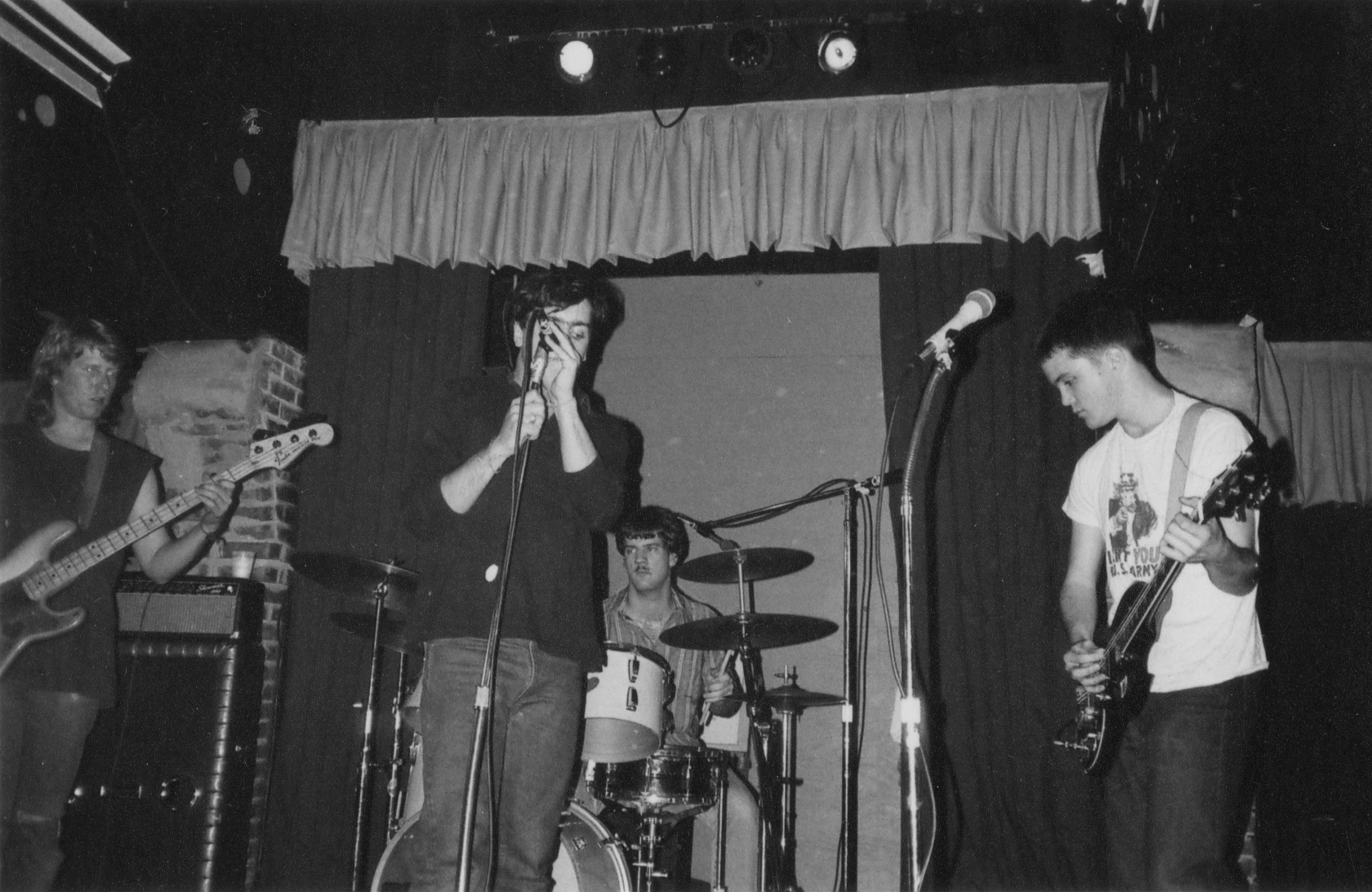
Banned 37 performing at the Celebrity Club, Atlanta, GA, 1985. (l-r) Eric Agner, Kenny Aguar, Robert Neal, and Mark Craig. Photo from Kim Clifford Archive
The mid-’80s Athens, Georgia group Banned 37 remains one of the Southern music mecca’s best kept secrets. Between 1983 and 1986, the dynamic quartet of Kenny Aguar, Newt Carter (who was replaced by Kilkenny Cats' Mark Craig in 1985), Eric Agner, and Robert Neal produced some of that decade’s finest jangle and power pop, in addition to sharing bills with the likes of Alex Chilton and Love Tractor. Andrew Rieger of Elf Power once compared Banned 37 to contemporaries Hüsker Dü and Rain Parade, highlighting the group’s distinctive blend of post-hardcore and Paisley Underground styles.
“I remember hearing the name of the band in articles over the years when reading about the 1980s Athens scene, but never heard any of their music until recently,” Rieger tells Cosmic Trattoria. “I became friends with Kenny Aguar as I saw his project 8-Track Gorilla perform many times in the ‘90s, and we toured together once when he came along on an Olivia Tremor Control / Elf Power tour in the late 1990s.”
Like Rieger, my introduction to Banned 37’s music was through the late, great Ross Shapiro’s YouTube channel, TheForgottenMan. Shapiro, who passed away in 2016, was the frontman of widely celebrated Athens band the Glands. He was also Aguar’s housemate in 1984.
Between the fuzzed-out college rock anthem “Guns and Cameras” and the more mellow, psych-influenced "Ordinary Day," I was immediately hooked. Seven studio recordings, seven live cuts, and a demo version of “Guns and Cameras” were recently uploaded by Aguar to SoundCloud, and are rumored to be part of a more widespread reissue campaign. These archived tracks were lovingly remastered by Jason NeSmith (Casper & the Cookies, of Montreal, the Late B.P. Helium), who had the following to say about Banned 37’s work:
“Observing from Atlanta in the mid-’90s, the Athens scene seemed to have so much community and willingness to create space for weird offshoots. Kenny's 8-Track Gorilla character and his citywide war with the spy car community appealed to my love of the absurd. I brought him to the Star Bar for a show with Orange Hat.
After I moved to Athens I would see Kenny and sometimes his brother Dan around town. I soon set up my studio, and Kenny brought me some of the Banned 37 tapes to transfer. I was surprised to hear such tunefulness from the Gorilla! Some of the material like ‘Guns & Cameras’ should have gotten them on John Peel's radar. They weren't afraid of branching out into some Chilton-esque country. You can also hear the beginnings of what folks were calling college rock -- someone called it kudzu pop which fits even better to me.
These demos and live tracks capture the transitional spirit of their time as channeled through four or five kids steeped in the Athens scene who would become lifers. Banned 37 held the mantle for a moment. I'm glad someone rolled some tape.”
Find Banned 37’s complete recordings here, and check out our interview with Aguar after the jump. — Marcel Sletten
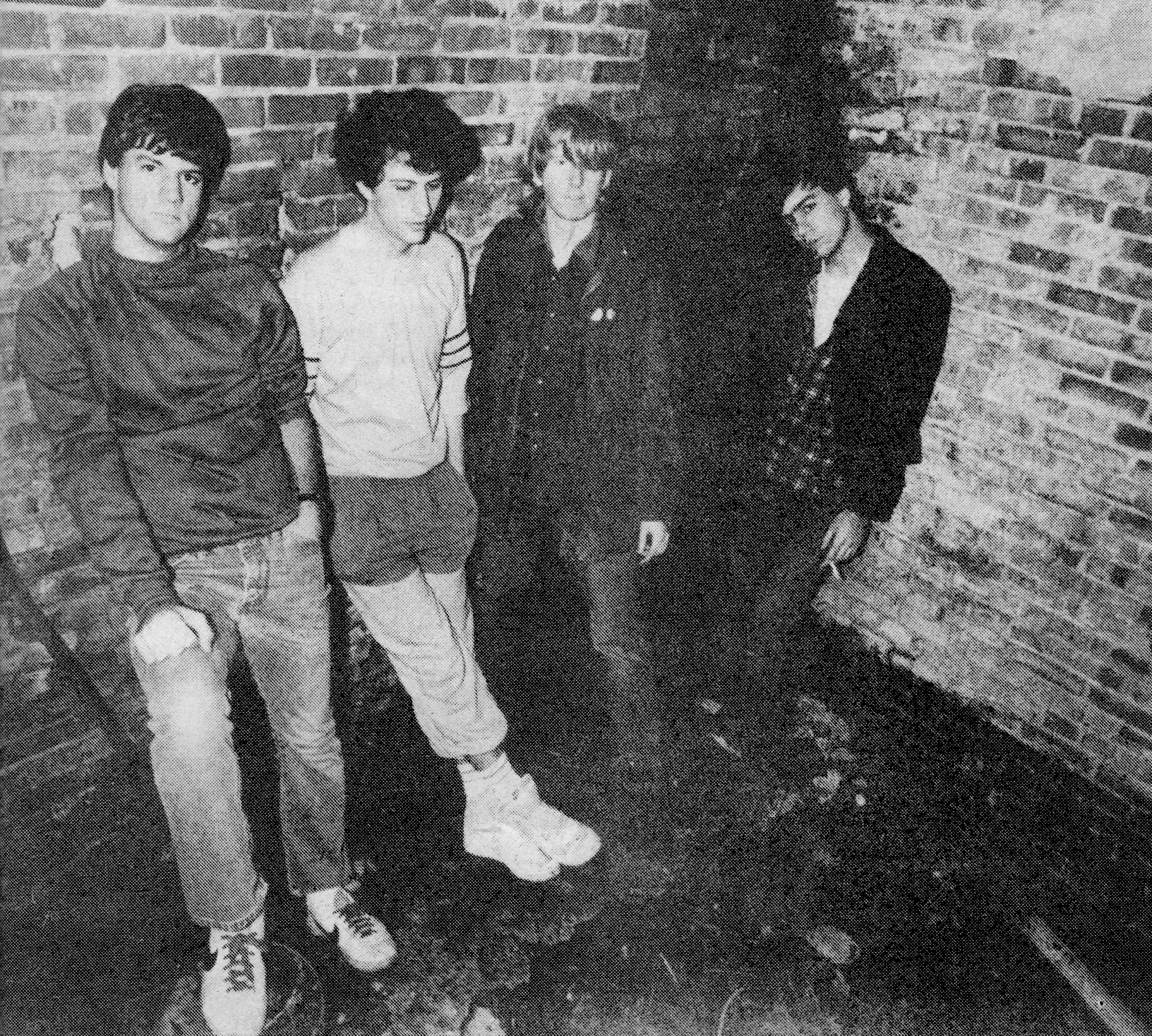
Promotional photo for Banned 37, 1984. (l-r) Robert Neal, Newt Carter, Eric Agner, and Kenny Aguar. Courtesy of Kenny Aguar
Could you tell us about the origins of the band? Were you all originally from Georgia?
I arrived in Athens at the dawn of the 1970s. Newt, Eric, and Rob went to opposite high schools but were all born in Athens. I was I guess what you would call a "child actor." My mother sang and kept a piano in the house. There were always plays and productions going on. Shakespeare, musicals, Oscar Wilde, Henry Miller, and Tennesse Williams, the great 20th century stuff. I had no real ambition. I liked theatre because there were girls, and I would ask them to help me with my eyeliner.
The year I graduated from high school, 1983, I flew to NYC for the first time to see David Bowie perform at Madison Square Garden. I remember when I came back from that trip I had a burning desire to join a band. I think it may have been someone in my theatre group (A.C.T), who told me they knew about a new group starting up. They needed a singer. They were already writing songs and were getting really good. They had never performed live before. That was about the time I walked in.
Did you end up writing songs for them later on? And who was responsible for organizing the band’s first live shows?
Newt Carter was the primary songwriter. I contributed lyrics. Eric also wrote songs. I was already kind of "on the scene,” but in reality, I was just delivering pizzas, drinking beer, and kissing girls. I had no ambition. I was making the rounds, taking names, trying to find out where to play before the band was even ready. We had to sneak Eric into shows because he was only 17. Our first show was opening for Love Tractor at the 40 Watt Club (Uptown) on Broad St. That was a good gig to get. Lots of exposure.
I booked the shows at first because I had a two-year home advantage due to age. I had just graduated high school, they were still in high school when I met them but the drinking age was 18. Then it turned to 19. Then 21. I kind of rode that wave after I hit 18. But I was already going to shows, making connections, and talking about a band I hadn't even joined yet! It all went down in Xmas 1983. We were opening for Love Tractor the following spring.
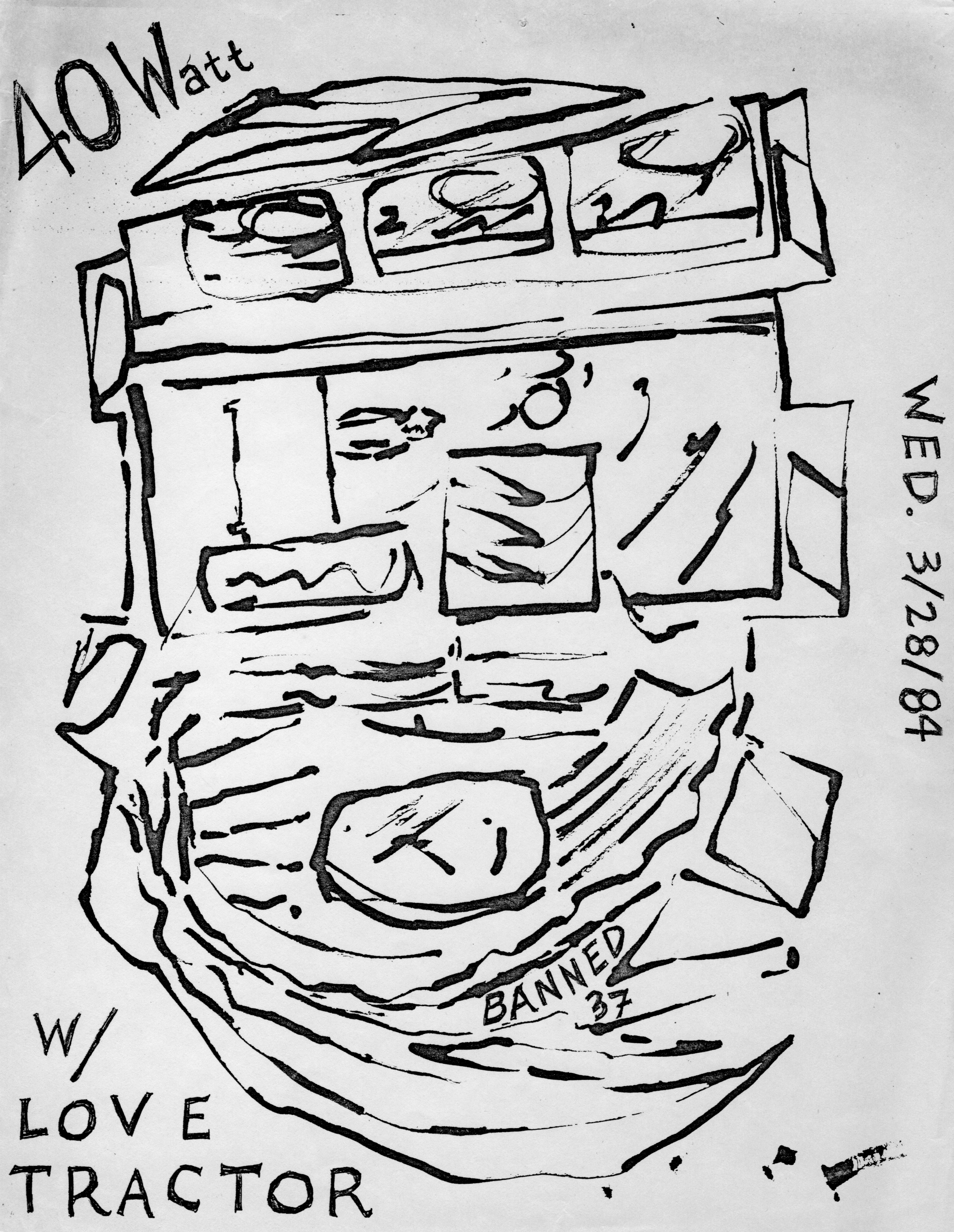
Flyer for Banned 37's concert with Love Tractor, 40 Watt Club, Athens, GA, 1984. Courtesy of Kenny Aguar
How much did the Athens music scene influence the band at this time? Did any of Banned 37’s contemporaries inform the group’s sound at all?
I suppose it was Kilkenny Cats, who we were being compared to, and the fact that we knicked their guitar player after he quit the group. 1983 was when the term “goth” came about. I think there are allusions to goth in our music. We were all fans of Echo and the Bunnymen, XTC, and Let's Active. We were a product of our environment. We didn't move here to start a band. The scene was not seclusive at all, it was inclusive. If I saw Michael from Pylon wearing a PiL t-shirt on stage during one of their shows, I would go out and find the music and get straight to the source. I was personally intrigued by Michael Stipe's fashion sense. We particularly identified with the Paisley Underground coming out of the West Coast, so there were many influences. We had our friends who followed us to every show.
Did Banned 37 ever intend to properly release this music during their initial run? I was introduced to the band through three lo-fi recordings on YouTube, and I was curious how this music was distributed back then, if at all.
Yes, we did. I sent tapes to several record companies. I received rejection letters. At the time, it was really expensive to release a 7-inch, and we all know that they never make money either. I suppose we didn't have "backers." The radio airplay we received were from "carts" that were used at WUOG 90.5 FM. A cart was like an 8-track player, except it only played one song. I shudder to think how many were destroyed when everything radio became digital. It was like being taken off the market completely.
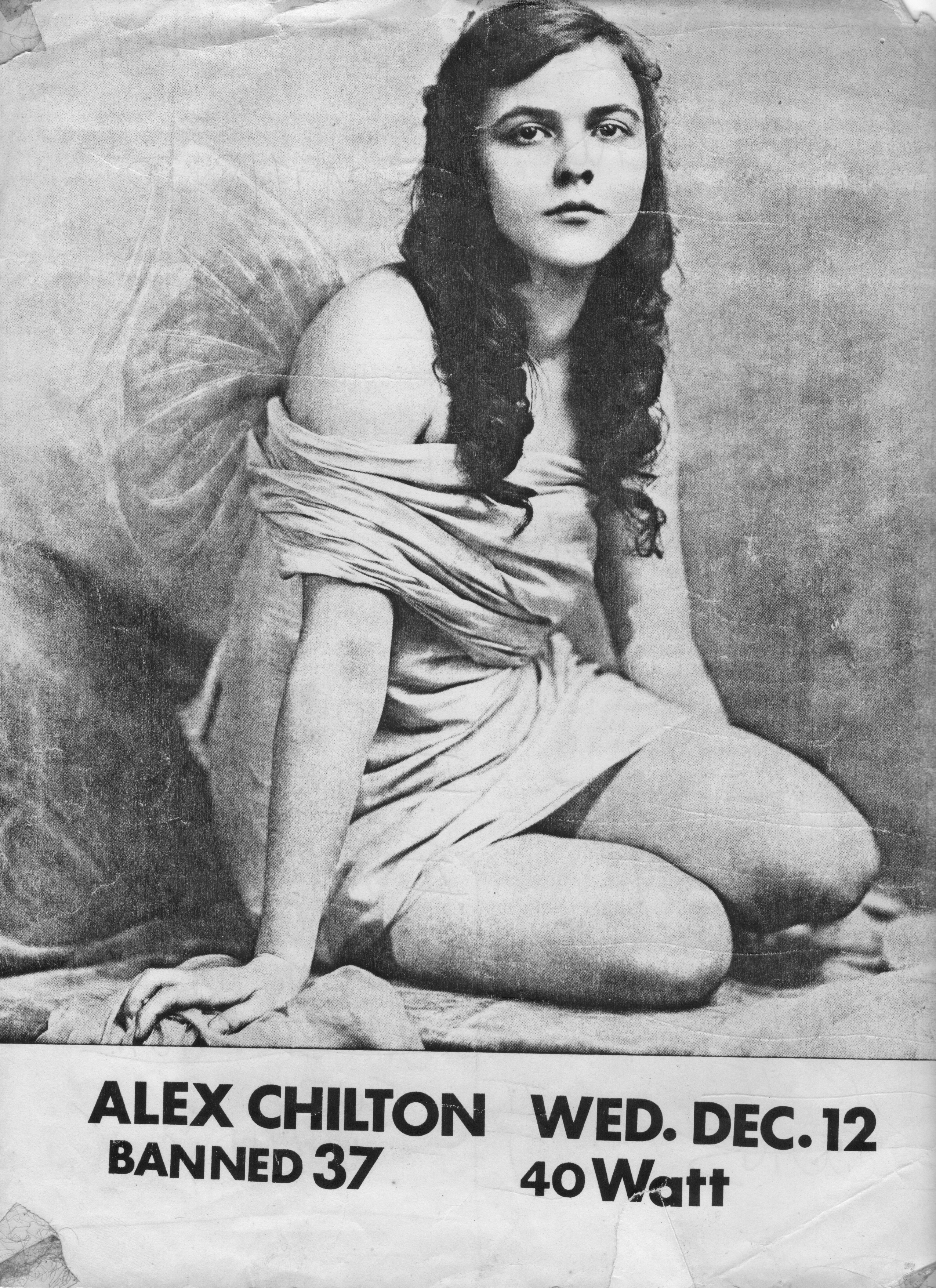
Flyer for Banned 37's concert with Alex Chilton, 40 Watt Club, Athens, GA, 1984. Courtesy of Kenny Aguar
What led to Banned 37 opening for Alex Chilton in 1984? You once told me that the band had an "unheralded relationship" with him, so I was wondering if you could elaborate on that.
It was all just being in the right place at the right time, I suppose. At that point of my life I had never heard Big Star, but the club owner liked us and we thought it would be a good fit. It was! One year later, Alex was playing at the 40 Watt Club (on Broad St.) with the Neats. We were headlining at the Uptown Lounge, and we found there were more people at our show. They all crashed my afterparty on Best Dr. By the time Alex arrived, the booze was practically gone. He split right after. We became rabid fans at that point. We learned his songs from a soundboard tape I had.
When did the band break up? And did you immediately pursue solo projects afterwards?
Banned 37 played their final show at Young Harris College in January 1986. I moved there in the fall of 1985 to begin my formal art training and found my muse. The breakup was amicable, though tinged with some bitterness unrelated to the band. I blamed myself for problems within the group. I attended our bass player Eric Agner's memorial service last night. It brought a lot of closure in a good way. I don't beat myself up about it. There was a purity in the music that can never be repeated. I accomplished what I set out to do, and now Banned 37 can be heard on SoundCloud and Bandcamp.
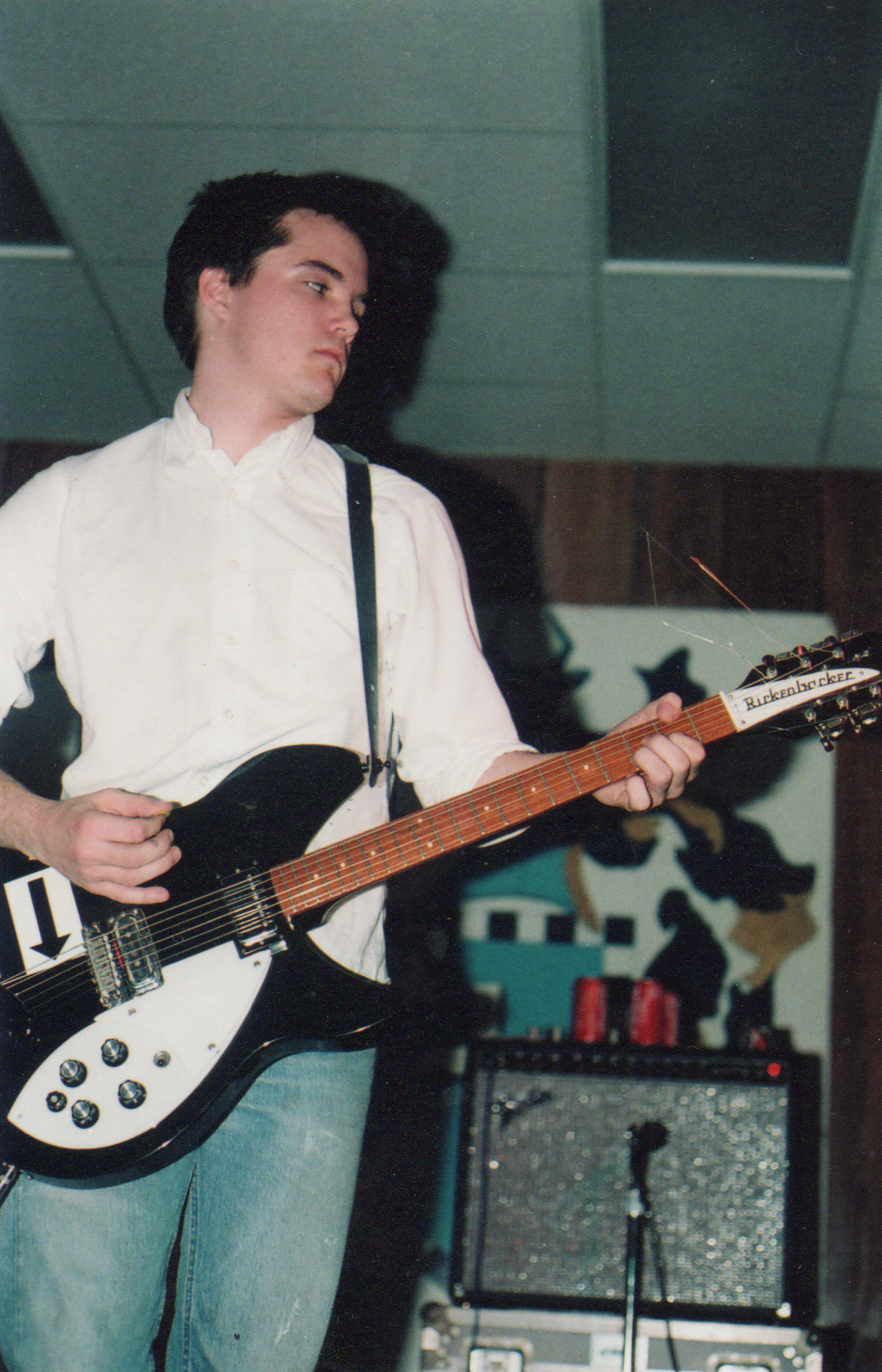
Mark Craig at Banned 37's final performance, Young Harris College, January 1986. Photo by Kim Cretors
How did you end up working with Jason NeSmith on remastering all of this material? And what led to the decision to reissue Banned 37's recordings?
Our bass player passed away in March from colon cancer. He was 56 years old. That pretty much motivated me to get the ball rolling. Preserve the art. This is not about me, it's about Eric and Newt (our guitar player who died in 2015).
Jason and I used to play music trivia at Little Kings. We had a pretty good team going! I was so glad to get a chance to work with him because he is a music nerd like myself. He moves swiftly and professionally. Just a really fun, great guy!
And finally, what would you like listeners to take away from these archived recordings?
Looking back on it, I think we had some great songs and better-than-average musicianship. Of course, I have only ever studied voice and had private voice lessons at YHC. Even before, with CCHS Chorale and All-State Chorus where I cut my first LP in 1980. I have toured the East and West portions of the U.S. on four occasions. I have performed in Europe, mostly Germany. I have released records under the name Melted Men and 8-Track Gorilla from 1995-2000, so I fulfilled that promise that was not achieved with Banned 37. There will never be a reunion. That was never the purpose. The purpose was to honor Newt Carter and Eric Agner, and purposefully, to preserve the art itself. Because of this there is nothing but the now, and the new, and I prefer to keep that as long as I can.
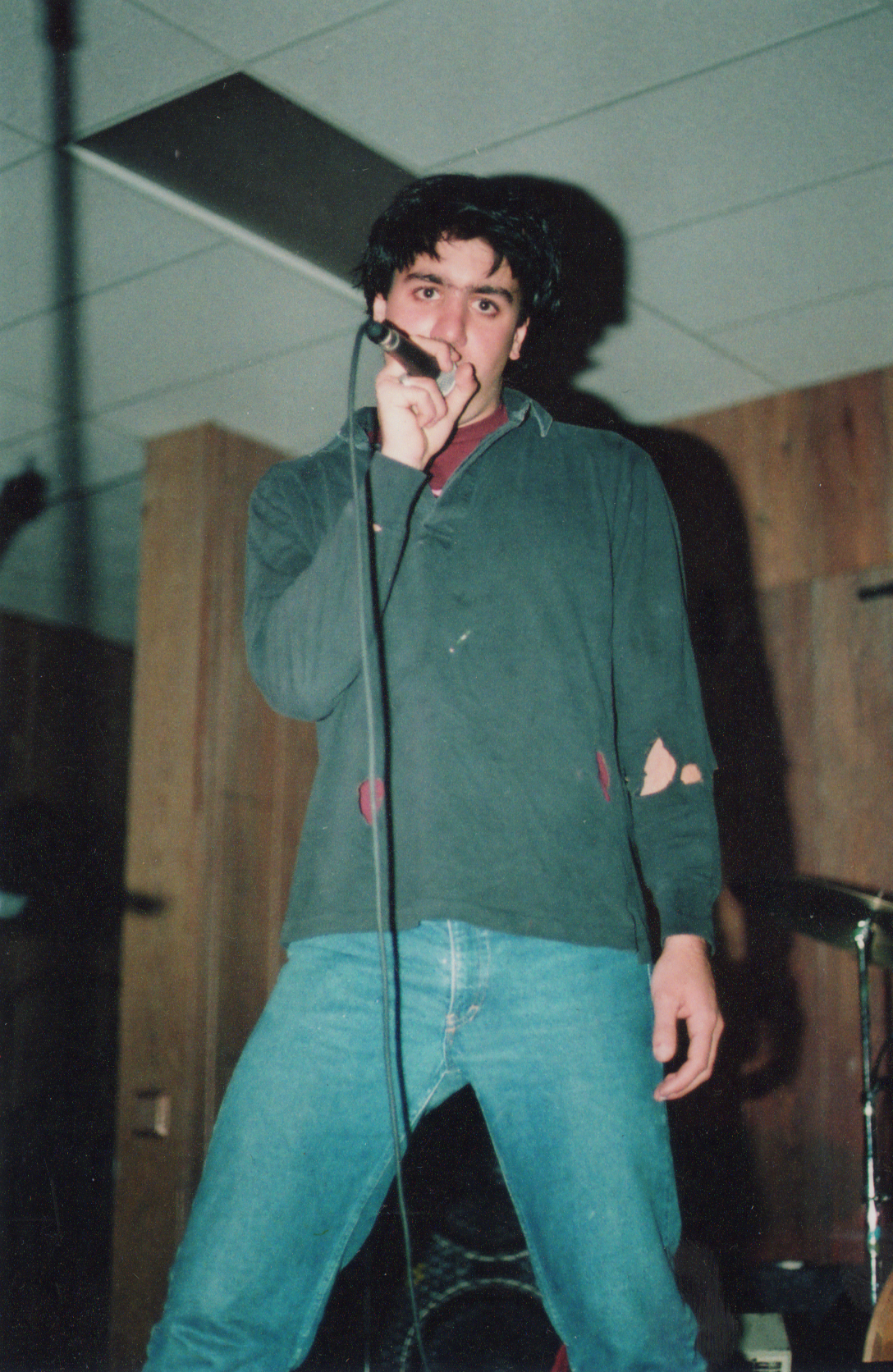
Kenny Aguar at Banned 37's final performance, Young Harris College, January 1986. Photo by Kim Cretors